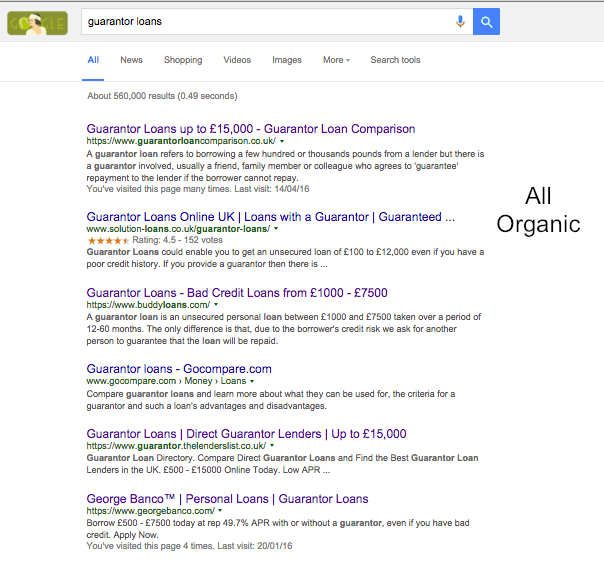Google takes time with the changes to its Adwords policy
Google are taking their time to roll out the changes to their new Adwords policy which is set to affect the paid (PPC) adverts for various loan products in the US, UK and elsewhere.
The new policy update was announced on 11th May 2016 with the plans to ban all paid adverts for payday loans and other financial products with a Representative APR of 36% or higher or where payment is due within 60 days. The idea of this policy set to go live on 13th July was to protect consumers from high interest loans, putting the likes of Wonga under the same bracket as firearms, recreational drugs and tobacco.
The Adwords policy was set to change on 13th July but 6 weeks later and nothing has happened
Loan companies and search engine marketers waited desperately to see the impact of the new policy and how it might affect the traffic and leads to their sites or clients. Also whether this strictly applies to the payday loan market or whether it could impact the guarantor loans industry too. But alas, the change is yet to go through.
How the Search Results Should Look

How the Search Results Currently Look

Why the delay?
It is likely that Google is slowly rolling this out and testing it on the US market first. There is still ambiguity as to how the paid adverts for payday loans and similar will change. The question is whether the adverts will disappear altogether or whether they will be replaced by debt solutions and low-cost alternatives that fall within the guidelines of being less than 36% APR and last longer than 60 days.
An article from Search Engine Roundtable explained that the adverts are starting to change in different parts of the US. In this example below, it shows charities and debt solutions shown in place of high-cost payday loans. This was written by Barry Schwartz who is a real expert in the field of search engine marketing – so it is a trustworthy source.

However, comments on that very article show that this policy update has not been fully changes across the rest of the US. Paid adverts and organic search are both very much state-specific in the US, making it very different to what we are used to in the UK.

Realistically, the change to Adwords will likely be rolled out state by state in the US until it eventually reaches the UK and whether this will impact the guarantor loan and logbook loan sectors is totally unknown. However, Google may decide one day to suddenly make all the necessary changes and we will all wake up to some completely new search results.
The impact to the industry
The overall implications to the payday and short term loan industry are also yet to be known. One imagines that the removal of paid adverts will affect those that rely on paid adverts as a source of traffic, specifically brokers, who lack the visibility on organic search and aggressively bid on paid keywords. Thus, the policy update creates a formidable barrier to entry.
One can expect greater search volumes for those ranking on page 1 of Google, further strengthening their market share against smaller players and brokers. With less adverts, you may find those sites on page 2 get a slight boost in traffic too. Our view is that the demand for short term loans will remain strong, regardless of whether paid adverts are removed and perhaps only a small percentage will benefit from the charities and alternatives that feature instead.
For more information on this change to the payday loans Adwords policy, you can read our article here.



